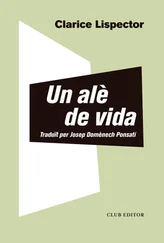The younger boy could stand it no longer:
— Do you want to be its mummy?
Startled, I answered yes. I was the messenger assigned to that creature which did not understand the only language I knew: I was loving without being loved. My mission might founder and the eyes of four children waited with the intransigence of hope for my first real sign of love. I recoiled a little, smiling and aloof; I looked at my family and wanted them to smile. A man and four little boys were staring at me, incredulous and trusting. I was the mistress of that household, the provider. I could not understand the impassiveness of these five males. How often I would founder, so that, in my hour of fear, they would look at me. I tried to isolate myself from the challenge of those five males, so that I, too, might expect love from myself and remember what love is like. I opened my mouth, I was about to tell them the truth: exactly how, I cannot say.
But what if a woman were to appear to me in the night holding a child in her arms. And what if she were to say: Take care of my child. I would reply: How can I? She would repeat: Take care of my child. I would reply: I cannot. She would insist: Take care of my child. Then — then, because I do not know how to do anything and because I cannot remember anything and because it is night — I would then stretch out my hand and save a child. Because it is night, because I am alone in another’s night, because this silence is much too great for me, because I have two hands in order to sacrifice the better of the two, and because I have no choice.
It was at that moment that I saw Ofélia again in my mind’s eye. And at that same moment I recalled that I had been the witness of a little girl.
Later, I remembered how my neighbour, Ofélia’s mother, had the dark complexion of an Indian woman. The dark shadows round her eyes made them very beautiful and gave her the sort of languorous appearance which caused men to take a second look. One day, when we were seated on a bench in the park, while the children were playing, she told me with that resolute expression of someone scanning the desert: ‘I have always wanted to take a course in confectionery.’ I remembered that her husband — who was also dark-skinned, as if they had chosen each other for their complexion — wanted to make a fortune in his particular line of business: he was the manager or perhaps even the owner of an hotel, I was never quite sure. This gave him an air of refinement but distinctly cool. When we could not avoid meeting in the lift, he tolerated an exchange of words with that haughty tone of voice which he had acquired in greater battles. By the time we reached the tenth floor, the humility his cold manner had forced from me placated him a little: perhaps he might even arrive home a little more amiable. As for Ofélia’s mother, because we lived on the same floor she feared we might become too intimate, and started avoiding me, unaware that I was also on my guard. The only intimacy between us had been that day on that bench in the park, where, with those dark shadows round her eyes and those thin lips, she had talked about learning how to decorate cakes. I did not know what to say and ended up by confiding, so that she might know that I liked her, that I, too, would like to take a course in confectionery. That one moment of mutual intimacy divided us even more, out of fear that any mutual understanding might be abused. Ofélia’s mother was even rude to me in the lift: the next day I was holding one of my children by the hand, the lift was going down slowly and, feeling oppressed by the silence which gave the other woman strength — I said in an affable tone of voice, which I myself found repugnant even as I spoke:
— We’re going to visit his grandmother.
Whereupon to my horror, she snapped in reply:
— No one asked you where you’re going. I never poke my nose into other people’s affairs.
— Well I never, I mumbled in a low voice.
This led me to believe there and then that I was being made to pay for that moment of intimacy on the park bench. This in turn made me think that she was afraid of having confided more than she actually had that day. And in turn made me wonder if she had not told me more, in fact, than either of us had realized. By the time the lift finally reached the ground floor, I had reconstituted that obstinate, languid air of hers on the park bench — and I gazed with new eyes at the proud beauty of Ofélia’s mother. ‘I won’t tell a soul that you want to learn how to decorate cakes’, I thought to myself, giving her a furtive glance.
The father hostile, the mother keeping her distance. A proud family. They treated me as if I were already living in their future hotel and as if I had offended them by not paying my bill. Above all, they treated me as if I did not believe, nor could they prove, who they were. And who were they? I sometimes asked myself that question. Why was that slap imprinted on their faces and why was that dynasty living in exile? Nor could they forgive me for carrying on as if I had been forgiven. If I met them on the street, outside the zone to which I had been confined, it terrified me to be caught out of bounds: I would draw back to let them pass, I gave way as the dusky, well-dressed trio passed as if on their way to Holy Mass — a family that lived under the sign of some proud destiny or hidden martyrdom — purple as the flowers of the Passion. Theirs was an ancient dynasty.
But contact was made through the daughter. She was a most beautiful child with her long hair in plaits. Ofélia with the same dark shadows round her eyes as her mother, the same gums looking a little inflamed, the same thin lips as if someone had inflicted a wound. But how those lips could talk. She started coming to visit me. The door-bell would ring, I would open the spy-hole without seeing anyone, and then I would hear a resolute voice:
— It’s me, Ofélia Maria dos Santos Aguiar.
Disheartened, I would open the door. Ofélia would enter. She had come to visit me, for my two little boys were far too small then to be treated to her phlegmatic wisdom. I was a grown-up and busy, but it was me she had to visit. She would arrive dispensing with any formalities, as if there were a time and place for everything. She would carefully lift her flounced skirt, sit down and arrange the flowers — and only then would she look at me. In the midst of duplicating my files, I carried on working and listening. Ofélia would then proceed to give me advice. She had very decided opinions about everything. Everything I did was not quite right in her opinion. She would say ‘in my opinion’ in a resentful tone, as if I should have asked her advice and, since I had not asked, she was giving it. With her eight proud and well-lived years, she told me that, in her opinion, I did not rear my children properly: for when you give children an inch, they take a mile. Bananas should not be served with milk. It can kill you. But of course, you must do what you think is best: everyone knows their own mind. It was rather late for me to be wearing a dressing-gown: her mother dressed as soon as she got up, but everyone must live as they see fit. If I tried to explain that I still had to take my bath, Ofélia would remain silent and watch me closely. With a hint of tenderness and then patience, she added that it was rather late to be taking a bath. I was never allowed the last word. What last word could I possibly offer when she informed me: vegetable patties should not be covered. One afternoon in the baker’s shop, I found myself unexpectedly confronting the useless truth: there stood a whole row of uncovered vegetable patties. ‘But I told you so’, I could hear her say, as if she were standing there beside me. With her plaits and flounces, with her unyielding delicacy. She would descend like a visitation into my sitting-room, which was still waiting to be tidied up. Fortunately she also talked a lot of nonsense, which made me smile, however low I might be feeling.
Читать дальше












